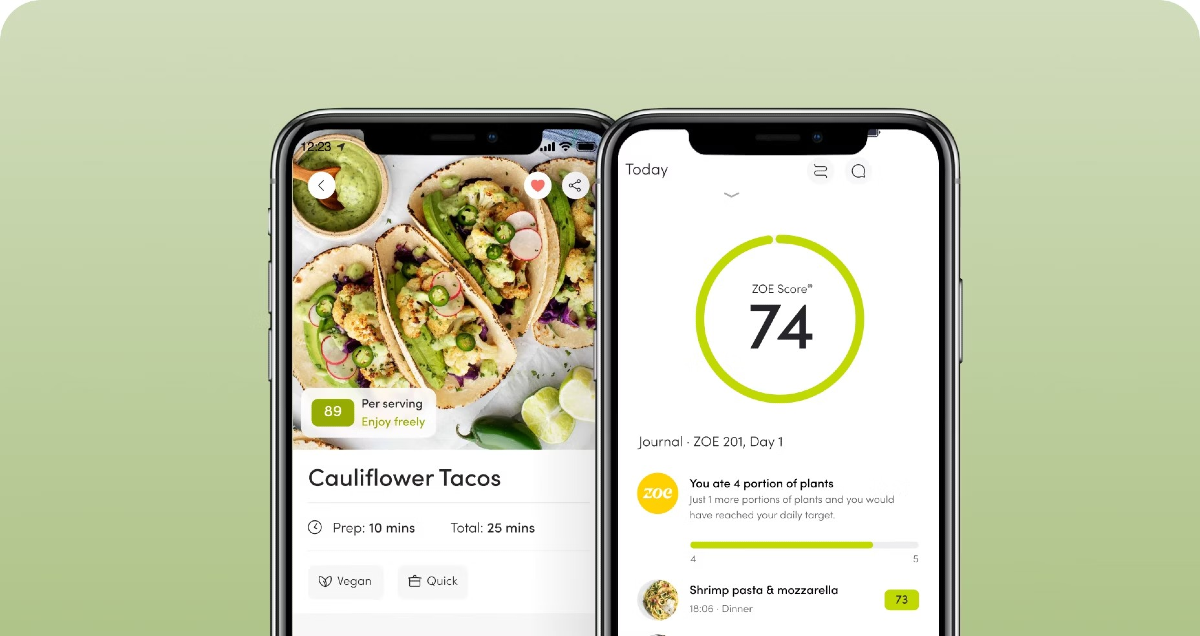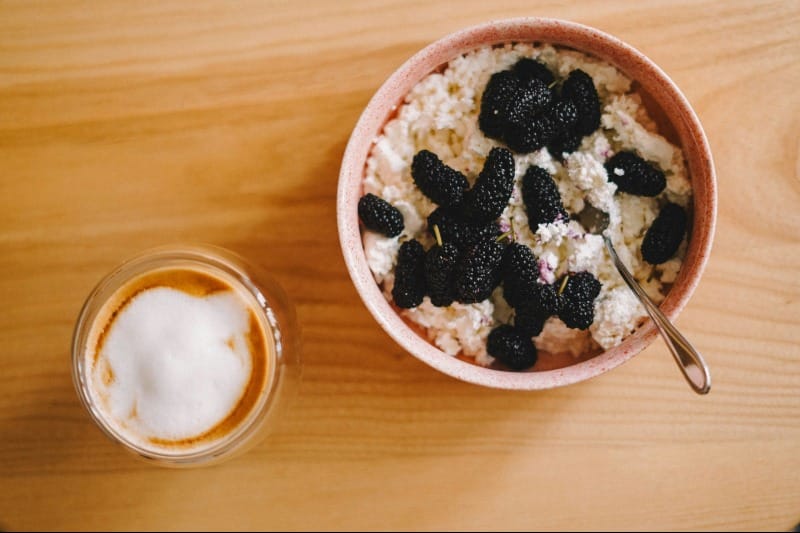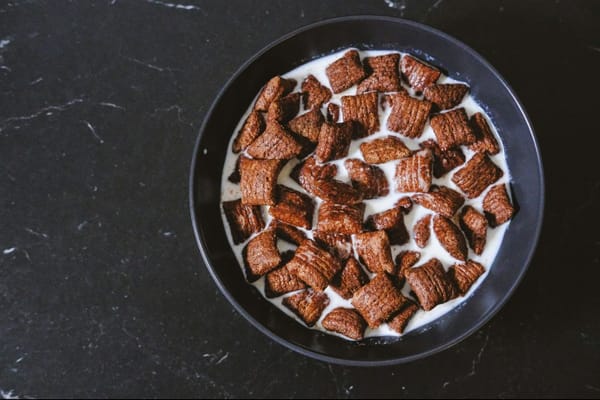In the quest for optimal health, many of us are turning our attention to the gut microbiome. Leading this charge is Professor Tim Spector, a renowned nutrition scientist who has revolutionized his own breakfast routine to support gut health. This article delves into Spector's morning meal choices and the foods he recommends avoiding, offering insights that could transform your breakfast and, potentially, your overall well-being.
Key Takeaways
- Professor Tim Spector opts for a gut-friendly breakfast of full-fat Greek yogurt, kefir, and diverse toppings.
- He avoids ultra-processed foods, added sugars, and orange juice in the morning.
- Fermented foods and black coffee are staples in Spector's gut-health promoting breakfast.
- A "diversity jar" of nuts, seeds, and dried fruits is a convenient way to add variety to meals.
- Spector's breakfast keeps him full until lunch and maintains consistent energy levels.

The Science Behind a Gut-Healthy Breakfast
Professor Tim Spector, a leading figure in nutrition science, has made significant changes to his breakfast routine based on his research into gut health. His current morning meal is a far cry from the granola, skim milk, and orange juice he once considered healthy[5].
The Ideal Gut-Friendly Breakfast
Spector's breakfast now consists of:
- 3-4 tablespoons of full-fat Greek yogurt
- About 150ml of kefir (fermented milk)
- A variety of toppings from his "diversity jar"
- Fresh or frozen berries
- A cup of black coffee
This combination is carefully crafted to support a healthy gut microbiome and provide sustained energy throughout the morning[5].
The Power of Fermented Foods
Fermented foods play a crucial role in Spector's breakfast. The inclusion of kefir allows him to consume one of his daily target of three fermented foods before even leaving the house. A 2021 study by Stanford University researchers found that fermented foods are associated with increased gut microbe diversity and decreased inflammation[5].
The "Diversity Jar" Concept
Spector's "diversity jar" is a simple yet effective way to increase the variety of nutrients in his diet. This container, filled with an assortment of nuts, seeds, and dried fruits, is ready to be sprinkled on meals and snacks, ensuring a wide range of beneficial compounds for gut health[5].
Foods to Avoid for Better Gut Health
Spector's breakfast choices are as much about what he excludes as what he includes. Here are the foods he avoids and why:
Ultra-Processed Foods
Bread, granola, muesli, and cereals are off the menu for Spector in the mornings. These foods often fall into the category of ultra-processed foods (UPFs), which have been linked to various health issues, including increased risks of cancer and type 2 diabetes[5].
Added Sugars
Many breakfast foods contain hidden added sugars, which Dr. Heidi Tissenbaum, an expert in healthy aging, warns can be damaging to health and longevity[5].
Orange Juice
Despite its reputation as a healthy breakfast drink, Spector considers orange juice "one of the worst things you can have in the morning" due to its high sugar content[5].
The Benefits of Coffee for Gut Health
Contrary to popular belief, Spector views coffee as a "health drink." He enjoys a cup of black coffee every morning, citing its benefits for gut microbes and heart health. Even decaf coffee retains these gut-friendly properties[5].
Coffee contains significant amounts of fiber and polyphenols, which Spector describes as "rocket fuel for your gut microbes." A 2020 review published in the journal Food Frontiers supported this view, suggesting that polyphenols are beneficial for gut health and may help prevent chronic diseases such as diabetes, obesity, and cardiovascular conditions[5].
The Impact of a Gut-Healthy Breakfast
Since adopting this gut-friendly breakfast routine, Spector has noticed significant improvements in his daily well-being. He reports feeling full "right through to lunch" and experiencing consistent energy levels throughout the morning[5].
Implementing Gut-Healthy Breakfast Habits
While Spector's specific breakfast may not be suitable for everyone, the principles behind his choices can be adapted to various dietary preferences and restrictions. Here are some tips for creating your own gut-friendly breakfast:
- Incorporate fermented foods like yogurt, kefir, or kombucha.
- Choose full-fat dairy products over low-fat alternatives.
- Add a variety of nuts, seeds, and berries for diverse nutrients.
- Avoid ultra-processed foods and those high in added sugars.
- Consider black coffee as a gut-healthy beverage option.
The Role of Breakfast in Overall Gut Health
While breakfast is important, it's just one part of a gut-healthy lifestyle. The ZOE Gut Health Test, developed by a team including Professor Spector, offers personalized nutrition advice based on individual gut microbiome analysis[1]. This test can provide deeper insights into your unique gut health needs and help tailor your diet accordingly.
Beyond Breakfast: Other Factors Affecting Gut Health
While focusing on a gut-friendly breakfast is a great start, it's important to consider other factors that influence gut health:
Fiber Intake
Increasing your overall fiber intake throughout the day can significantly benefit your gut microbiome. Foods high in soluble fiber, such as beans and apples, may improve symptoms related to occasional constipation[4].
Prebiotics and Probiotics
Incorporating prebiotic and probiotic foods or supplements can support a healthy gut microbiome. Prebiotics are found in foods like oats, barley, and bananas, while probiotics are present in fermented foods like kimchi and certain dairy products[4].
Hydration
Proper hydration is crucial for digestive health. While coffee can be part of a healthy breakfast, it's important to balance it with adequate water intake[2].
Conclusion
Professor Tim Spector's approach to breakfast offers valuable insights into supporting gut health through our daily food choices. By focusing on fermented foods, diverse plant-based toppings, and avoiding ultra-processed options, we can nurture our gut microbiome from the very start of the day. While individual needs may vary, the principles behind Spector's breakfast choices provide a solid foundation for anyone looking to improve their gut health and overall well-being.
Remember, sustainable changes to your diet should be made gradually and in consultation with a healthcare professional, especially if you have existing health conditions. By making informed choices about our first meal of the day, we can set the stage for better gut health and potentially improve our overall quality of life.
Citations:
[1] https://www.sanatorium.health/zoe-gut-health-test-a-game-changer-or-overhyped
[2] https://health.mountsinai.org/blog/the-importance-of-breakfast-for-your-health/
[4] https://www.nestlemedicalhub.com/therapeutic-areas/digestive-health
[5] https://www.businessinsider.com/tim-spector-gut-health-microbiome-healthy-breakfast-foods-2024-8
[6] https://www.eatingwell.com/article/8062398/best-breakfast-for-gut-health/
[7] https://www.aol.com/dietitians-begging-people-stop-eating-142500693.html














Member discussion